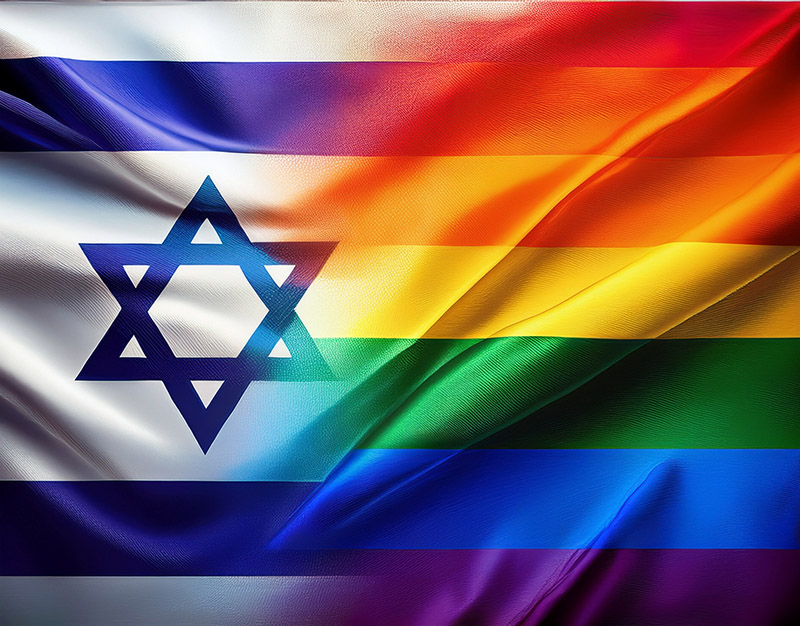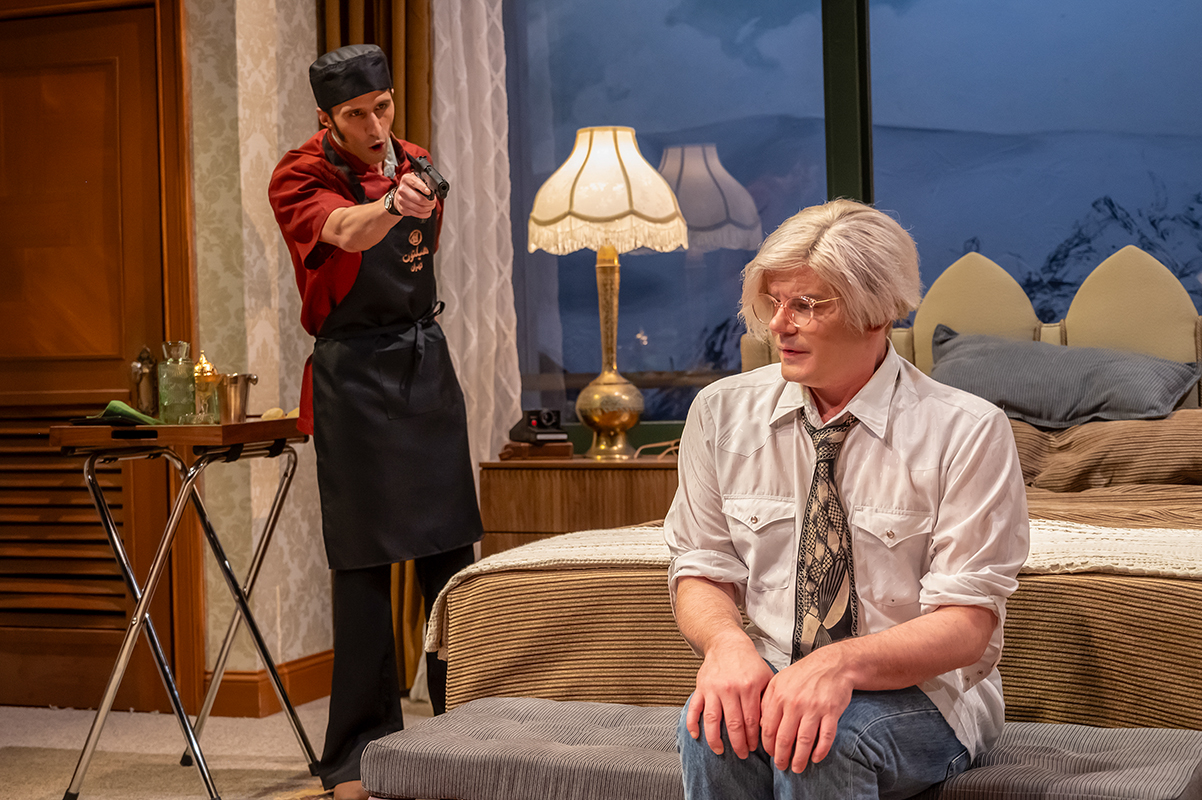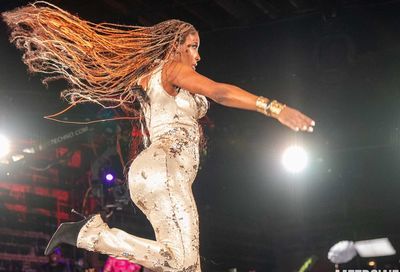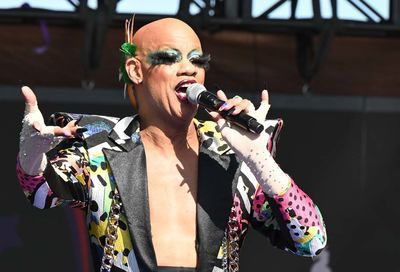Theater review: “Rich Kids” at Woolly Mammoth
"Rich Kids: A History of Shopping Malls in Tehran" spins a snarky social media web of intrigue and income inequality

They caused a sensation in Tehran, and now they’re crashing a screen near you — or the screen you’re holding, since much of Woolly Mammoth’s Rich Kids: A History of Shopping Malls in Tehran (★★★☆☆) streams and scrolls live off Instagram. Take seriously the suggestion from the play’s creators to have the app open and your scrolling finger ready in order to fully enter the decadent world of the perpetually-posting scions of Iran’s post-Revolutionary elite.
As we’re informed by onscreen interlocutors Peyvand Sadeghian and Javaad Alipoor, the real-life rich kids of Tehran caused a nationwide stir several years ago with an Instagram page dedicated to flaunting their ostentatious wealth. Outrage over their lifestyle of parties and Porsches then went global when a high-speed auto accident exposed the fatal recklessness exhibited by this class of unabashed hedonists.
Parivash and Hossein, the driver and passenger killed in the crash they apparently caused, gained infamy both for the record they left of themselves on social media and for the media-ready scandal lurking behind their relationship. Hossein was the grandson of an ayatollah instrumental in the 1979 Revolution, and was engaged to a different woman than Parivash, the IG influencer who died at the wheel of his Porsche that night.
Rich Kids leads its audience on an archival tour of the couple’s IG posts, restaged for the show with humorous disdain for rich assholes everywhere. But it seems morbid to construct a screed “about digital culture and consumerism” around hate-scrolling through the feed of dead people who can’t be the worst example of the corruption the play so heartily condemns. As it turns out, Parivash and Hossein are merely an entry point for the play’s broader study of the extravagant and doomed.
Digressing from the rich kids’ feed, the play dives down a rabbit hole of revolutionary history, income inequality, conspicuous consumption, climate change, and heated discussions of the Anthropocene age. Presenters Sadeghian and Alipoor toggle between quick-cut IG live videos, graphics displays, text, and photos, both historical and staged.
Speaking from a separate screen — so be sure to have a second device handy to experience this show — the pair share a forceful delivery that lands the mood somewhere between political theater and propaganda video. Sadeghian slips a wicked sense of humor into her news anchor-style elocution. Alipoor, who co-created Rich Kids with Kirsty Housley, carries more of the urgent emotion behind the litany of consciousness-raising facts and figures they recite throughout the play.

Ultimately, Rich Kids wants to lead viewers to consider, as the Aztecs did, “the ending of worlds,” and the marks mankind will leave on this planet. Concrete shopping malls, plastics, radioactive waste, and millions of tons of chicken bones likely will outlive our civilization. So too, perhaps, will the billions of images and posts produced every day, every minute by rich kids from Tehran to Terre Haute, and everywhere in between.
By its virtual and online nature, dependent on personal electronics and a certain amount of privilege, Rich Kids implicates its audience in the waste and consumption it rails against — but at least, at just $16 a ticket, you won’t be charged too steeply for this chance to judge your life.
Rich Kids: A History of Shopping Malls in Tehran performances stream live through April 18. Tickets are $15.99. Visit www.woollymammoth.net.
Read More:
Bethesda Film Fest offers free screening access to seven documentaries
Hamilton Live reopens for in-person concerts and film screenings
Watch American Pops Orchestra’s NextGen National Finals live
Support Metro Weekly’s Journalism
These are challenging times for news organizations. And yet it’s crucial we stay active and provide vital resources and information to both our local readers and the world. So won’t you please take a moment and consider supporting Metro Weekly with a membership? For as little as $5 a month, you can help ensure Metro Weekly magazine and MetroWeekly.com remain free, viable resources as we provide the best, most diverse, culturally-resonant LGBTQ coverage in both the D.C. region and around the world. Memberships come with exclusive perks and discounts, your own personal digital delivery of each week’s magazine (and an archive), access to our Member's Lounge when it launches this fall, and exclusive members-only items like Metro Weekly Membership Mugs and Tote Bags! Check out all our membership levels here and please join us today!





























You must be logged in to post a comment.